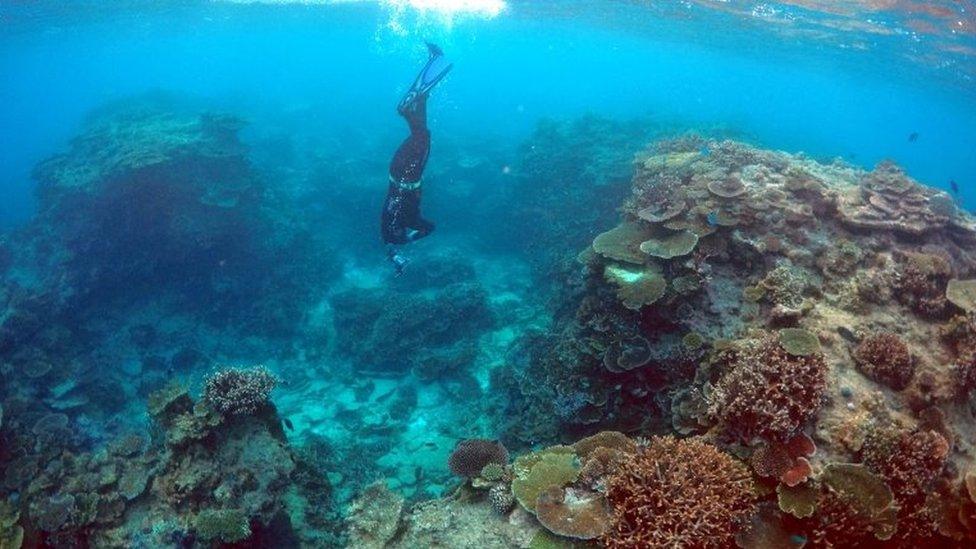Great Barrier Reef: Australia pledges A$1bn but draws renewed climate criticism
- Published

The Great Barrier Reef is one of the world's most biodiverse ecosystems
Australia will spend A$1bn (£520m; $700m) over nine years on improving the water quality and other aspects of the ailing Great Barrier Reef, its PM says.
Scientists have welcomed the money but warn it does not tackle the reef's overriding threat of climate change.
A climate laggard among rich nations, Australia is often criticised for not doing more to prevent coral bleaching caused by warmer seas.
PM Scott Morrison argued the new investment would have broad benefits.
It will fund projects that reduce erosion and pollutants entering the sea, and other conservation efforts - such as combating illegal fishing and coral-eating starfish.
"There are 64,000 jobs that depend on that reef," Mr Morrison said on Friday.
"And so its health is about the economic health of that region, as well as the natural health of that region."
Mr Morrison is expected to call a general election in May and will hope to retain key seats in Queensland, where the reef is located. He said the new money added to A$2bn in existing commitments.
But Friday's announcement also comes days before Australia is due to update Unesco on its plans to preserve its natural wonder.
Last year the government successfully lobbied to keep the reef off Unesco's official list of World Heritage sites "in danger", drawing controversy after unprecedented back-to-back coral bleaching events.
Renewed criticism followed Friday's announcement. The Australian Conservation Foundation said improving water quality was important "but without climate action the reef is doomed".
The Australian Marine Conservation Society said tackling erosion was "a gap that needed to be addressed" but called on the government to "drastically increase their climate ambition".
"Currently areas of the Great Barrier Reef are on high alert for a major bleaching event, which is unprecedented during the La Nina weather pattern," it said in a statement.
Bleaching occurs when under-stress corals expel the algae living within them that gives them colour and life. They can recover but only if conditions allow it.
Australia has committed to reaching net zero carbon emissions, but its 2030 commitment - a 26% cut on 2005 levels - has been criticised as weak.
It has defended itself by arguing it is on track to meet its commitments - a claim previously disputed by the UN - and that climate change is a global issue.
Stretching over 2,300km (1,400 miles) off Australia's north-east coast, the Great Barrier Reef is one of the most biodiverse ecosystems in the world.
You may also be interested in:
Rare "walking fish" spotted for first time in Australia
Related topics
- Published22 October 2021